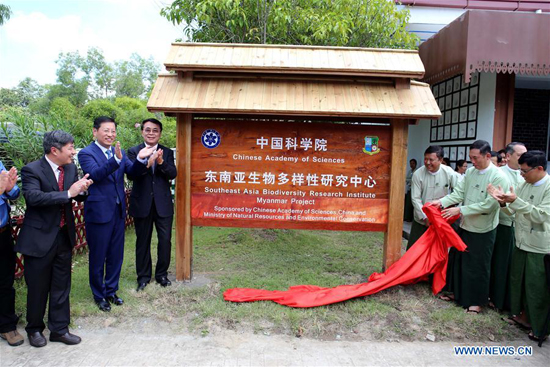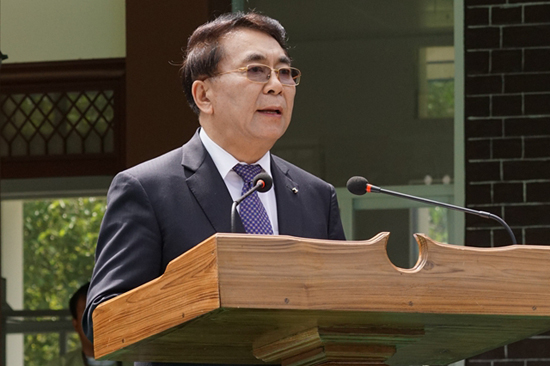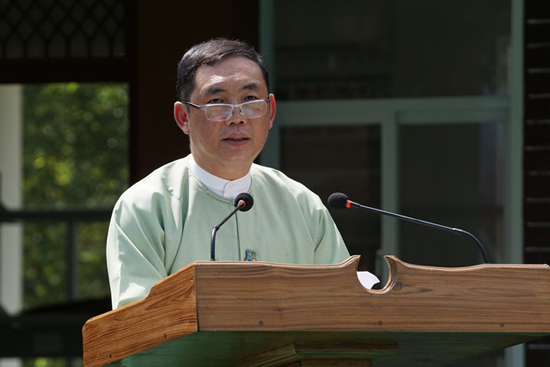China, Myanmar deepen cooperation in biodiversity research

The Southeast Asia Biodiversity Research Institute of the Chinese Academy of Sciences (CAS-SEABRI), established by China and Myanmar, was unveiled in Nay Pyi Taw, Myanmar, on Oct. 12, and is expected to be a leading institution for collaborative scientific research on and preservation of biodiversity among the Southeast Asian countries.
CAS-SEABRI, co-sponsored by CAS and the Myanmar Ministry of Natural Resources and Environmental Conservation, is CAS' first overseas project in Myanmar. Its construction began in 2013 under a bilateral MoU.
At the opening ceremony, Bai Chunli, president of CAS, approved of CAS-SEABRI's performance in joint field studies, researcher visits and talents cultivation in the past year and expected that CAS-SEABRI will be a pilot project for international cooperation in biodiversity research.

Despite having a very high level of biodiversity, the ecosystem in many parts of Myanmar is under threat from fast economic development, according to U Khin Maung Yee, permanent secretary for the ministry of natural resources and environmental conservation of Myanmar. He encouraged more Myanmarians to get involved in CAS-SEABRI to receive academic training to increase their ability to preserve their own bio-resources.

So far, CAS-SEABRI has set up four research groups in plant diversity and conservation, aquatic plant diversity, traditional medicine and ethnobotany, and animal diversity and conservation. Researchers from both counties have finished three large-scale field biodiversity investigations, collecting 1,500 plant specimens, capturing 10,000 photos by infrared thermal cameras and finding 20 new plant species and 100 new spider species.
CAS-SEABRI will serve as a powerful international platform for collaborative research and discovery, training outstanding youths from Southeast Asia in master and PhD programs.
CAS-SEABRI, regarded by Hong Liang, Chinese ambassador to Myanmar as a historic symbol of China-Myanmar science and technology cooperation, was established for closer international collaboration in scientific research among the countries along the Belt and Road and in Southeast Asia.















